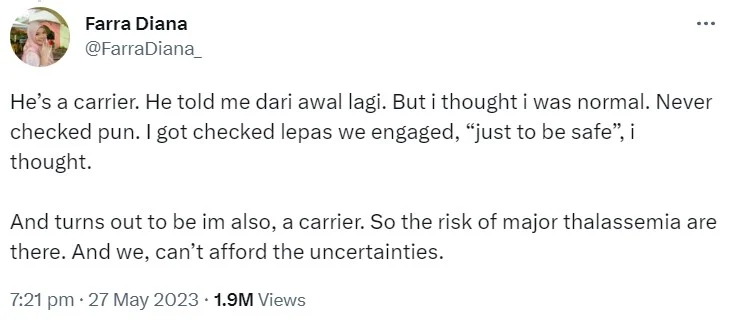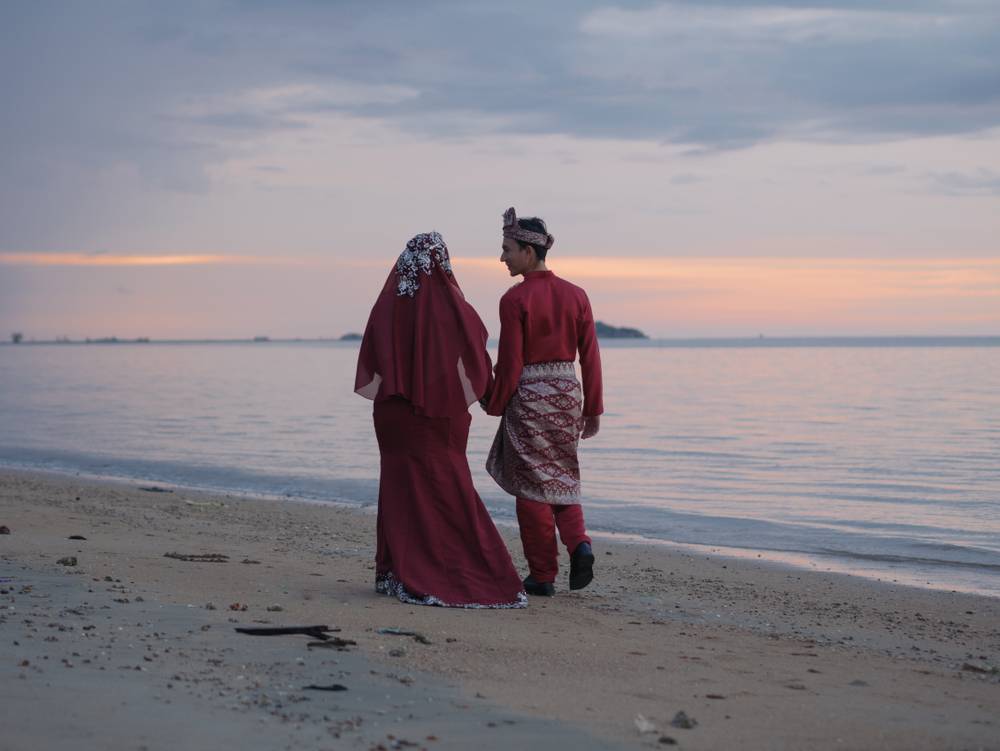In a painful decision rooted in concern for their future children, a Malaysian couple has ended their engagement after discovering they both carry the gene for the blood disorder, thalassemia.
Dr Farra Diana and her ex-fiancé, Dr Ashraff, were looking forward to starting a new life together until a routine screening revealed that they were both carriers of the gene for thalassemia. If they were to have children, there would be a 25% chance of producing offspring with severe thalassemia, also known as thalassemia major. This condition often leads to severe anaemia that necessitates lifelong blood transfusions and could cause stunted growth, according to the National Library of Medicine (NIH).
The couple’s firsthand experience with children suffering from the disorder in their hospital’s pediatric department reinforced their resolve not to risk bringing a child into the world who might have to endure such a challenging condition.
An Amicable but Heartrending Decision
Following months of discussion, the couple ultimately agreed to end their engagement. Dr Ashraff insisted they should not be selfish and needed to consider their potential children’s well-being.
Photo credit: @Farradiana_ (Twitter)
Despite the heartbreak, Dr Farra and Dr Ashraff’s decision has resonated with many. Netizens considered their selfless act underscoring their commitment to medical ethics and the welfare of future generations.
What is Thalassemia?
Thalassemia is a group of inherited blood disorders characterized by decreased and/or abnormal production of haemoglobin. Haemoglobin is a protein in red blood cells that carries oxygen to all parts of the body. This abnormality results in the destruction of a larger number of red blood cells. Subsequently, this leads to anaemia, a condition in which your body doesn’t have enough normal, healthy red blood cells.
There are two main types of thalassemia: alpha and beta. They are named after the two protein chains that make up normal haemoglobin. The severity of thalassemia depends on how many of the four genes (for alpha thalassemia) or two genes (for beta thalassemia) are mutated.
When it comes to the couple in question, they’re both carriers of the thalassemia trait. This means that they don’t have the disease themselves, but they carry a copy of the mutated gene. If two carriers of the trait have a child together, there’s a 25% chance in each pregnancy that the child will inherit two mutated genes, one from each parent, and will have thalassemia disease.
This could potentially result in the child having thalassemia major. This is the most severe form of the disease. It often leads to severe anaemia, regular blood transfusions, a host of other medical complications, and a reduced lifespan. By breaking off the engagement and not proceeding with their plan to have biological children, the couple has decided to avoid the risk of having a child with severe thalassemia.
Exploring Alternatives
In response to their situation, many Malaysians offered suggestions to help the couple move forward. Obstetrician-gynaecologist Dr Mohd Faizal Bin Ahmad noted that many couples with the thalassemia gene have gone on to conceive healthy children through in-vitro fertilisation (IVF), a treatment available in Malaysia for some time. Others recommended adoption.
However, Dr Farra revealed that they had already explored all these possibilities. She highlighted that the 25% risk would apply to each pregnancy, not just one in four children. As practicing doctors with demanding schedules, they worried they would not have enough time to adequately care for a child with thalassemia. And while adoption might be a feasible alternative, Dr Farra questioned whether it was wrong to desire a child of her own.
An Emotional Journey
Despite the sadness and loss, both Dr Farra and Dr Ashraff demonstrated extraordinary courage and selflessness in their decision. Their story has sparked discussions about thalassemia and the difficult choices couples might face when contemplating their future children’s health. It’s a poignant reminder of the intersection between love, genetics, and the ethical considerations around potential life.

